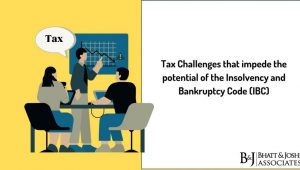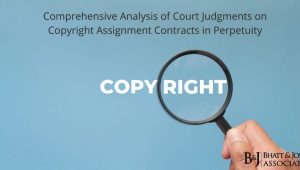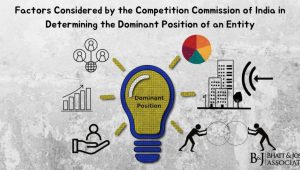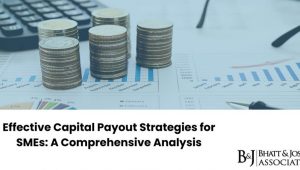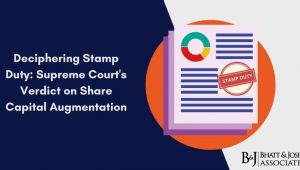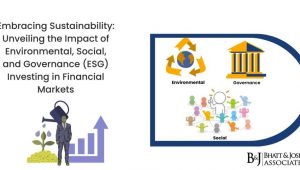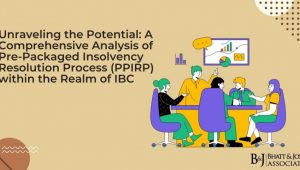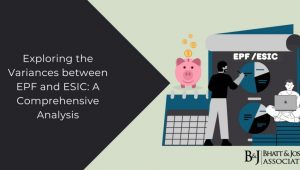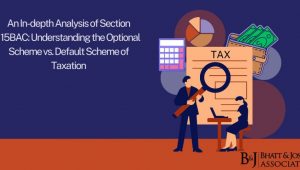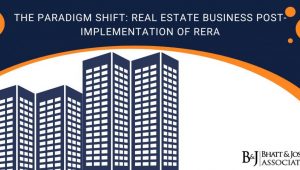Commissioner of Income Tax(CIT) APPEALS & ITAT

Bhatt & Joshi Associates is a law firm located in Gujarat, Ahmedabad, providing legal services and litigation support to their prospective clients at the Income Tax Appeal. Our lawyers are highly qualified, experienced, and competent in representing related matters before the Commissioner of Income Tax Appeals, ITAT, and Gujarat High Court. Here we will discuss the various stages of appeal under Income Tax Law, including the Commissioner of Income Tax Appeals, the Income Tax Appellate Tribunal, the High Court, and the Supreme Court. We will also provide an overview of the litigation support services we offer for filing and arguing Income Tax Appeals in the best possible manner to help save taxpayers’ hard-earned money.
Appeal Before the CIT – Commissioner of Income Tax (Appeals)
Whenever a taxpayer is aggrieved by an order of the Assessing Officer, they can file an appeal against the order of the Assessing Officer before the Commissioner of Income-tax (Appeals). The Commissioner of Income-tax (Appeals) is the first appellate authority. Section 246A specifies the orders against which an appeal can be filed before the Commissioner of Income-tax (Appeals). As per the provisions of Section 249(2), an appeal should be presented within 30 days of the cause of grievance arising.
Form of Appeal
The CBDT had substituted the Rule 45 of Income-tax Rules, 1962 relating to filing of Form of appeal to CIT(A) vide Income-tax (3rd Amendment) Rules, 2016. By virtue of such amendment, the CBDT had issued a new Form No. 35 for filing an appeal before CIT(A). Further, e-filing of Form has been made mandatory for persons for whom e-filing of return of income is mandatory.
Appeal Before the Income Tax Appellate Tribunal
While the CIT Commissioner of Income Tax (Appeals) is the first appellate authority, the Income Tax Appellate Tribunal (ITAT) is the second appellate authority. Appeal to the ITAT can be filed by any of the aggrieved party either by the taxpayer or by the Assessing Officer. The ITAT is constituted by the Central Government and functions under the Ministry of Law. ITAT consists of two classes of members – Judicial and Accountant.
Time-Limit for Presenting Appeal
Appeal to the ITAT is to be filed within a period of 60 days from the date on which the order sought to be appealed against is communicated to the taxpayer or to the Principal Commissioner of Income-Tax or Commissioner of Income-Tax (as the case may be). The ITAT may admit an appeal even after the period of 60 days if it is satisfied that there was sufficient cause for not presenting the appeal within the prescribed time.
Form and Signature
The appeal to ITAT shall be filed in Form No. 36. In case of appeal by the taxpayer, the form of appeal, the grounds of appeal and the form of verification are to be signed and verified by the person authorized to sign the return of income under section 140.
Jurisdiction of High Court
There is the availability of statutory provision under Section 260A (1) of the Income Tax, 1961, under which the affected party may file an appeal before the High Court aggrieved by the order passed in appeal by the Appellate Tribunal. However, the appeal will be admitted before the High Court only if the High Court is satisfied that the case involves a substantial question of law or facts.
Writ Jurisdiction of High Court
Although multiple remedies are available under the Income Tax Act, there is always a constitutional provision available to represent tax litigations before the High Court, wherein a writ petition under Article 226 and Article 227 of the Indian Constitution can be filed.
In the context of tax litigations, writ petitions under Article 226 and 227 can be filed challenging the validity of any order or decision made by the tax authorities or the Appellate Tribunal. For example, a writ petition can be filed challenging the constitutional validity of a particular provision of the Income Tax Act or the manner in which it is being enforced by the tax authorities.
The High Court has the power to quash any such order or decision if it is found to be illegal, arbitrary, or against the principles of natural justice. The court can also issue writs of mandamus to compel the tax authorities to perform their statutory duties or to prohibit them from acting beyond their powers.
In addition to writ petitions, appeals can also be filed before the High Court against orders passed by the Appellate Tribunal. However, it is important to note that appeals can only be filed on substantial questions of law and not on questions of fact.
In conclusion, the writ jurisdiction of the High Court is a powerful tool for taxpayers to challenge any illegal or arbitrary actions by the tax authorities. It is advisable to seek the assistance of a tax lawyer to understand the nuances of tax litigations and to effectively represent your case before the court.
Income Tax Appeals at Bhatt & Joshi Associates
At Bhatt & Joshi Associates, we understand that dealing with tax litigations can be overwhelming and complex. Our team of experienced and skilled income tax appeal lawyers in Ahmedabad are equipped with the knowledge and expertise to provide effective legal representation to our clients.
Our approach to tax litigation is comprehensive and tailored to each client’s specific needs. We work closely with our clients to understand their unique situations and develop a personalized strategy to achieve their objectives. Our lawyers are well-versed in the Income Tax Act and have extensive experience representing clients before the Income Tax Appellate Tribunal, High Court, and Supreme Court.
We take pride in our commitment to providing the highest level of service to our clients. We are dedicated to keeping our clients informed throughout the legal process and providing them with clear and concise advice. Our goal is to ensure that our clients have a complete understanding of their legal options and are able to make informed decisions.
If you are facing a tax litigation issue and are in need of legal representation, look no further than Bhatt & Joshi Associates. Contact us today to speak with one of our experienced income tax appeal lawyers in Ahmedabad and learn how we can assist you in resolving your tax issues.
“Justice is the constant and perpetual will to allot to every man his due.” – Domitus Ulpianus






